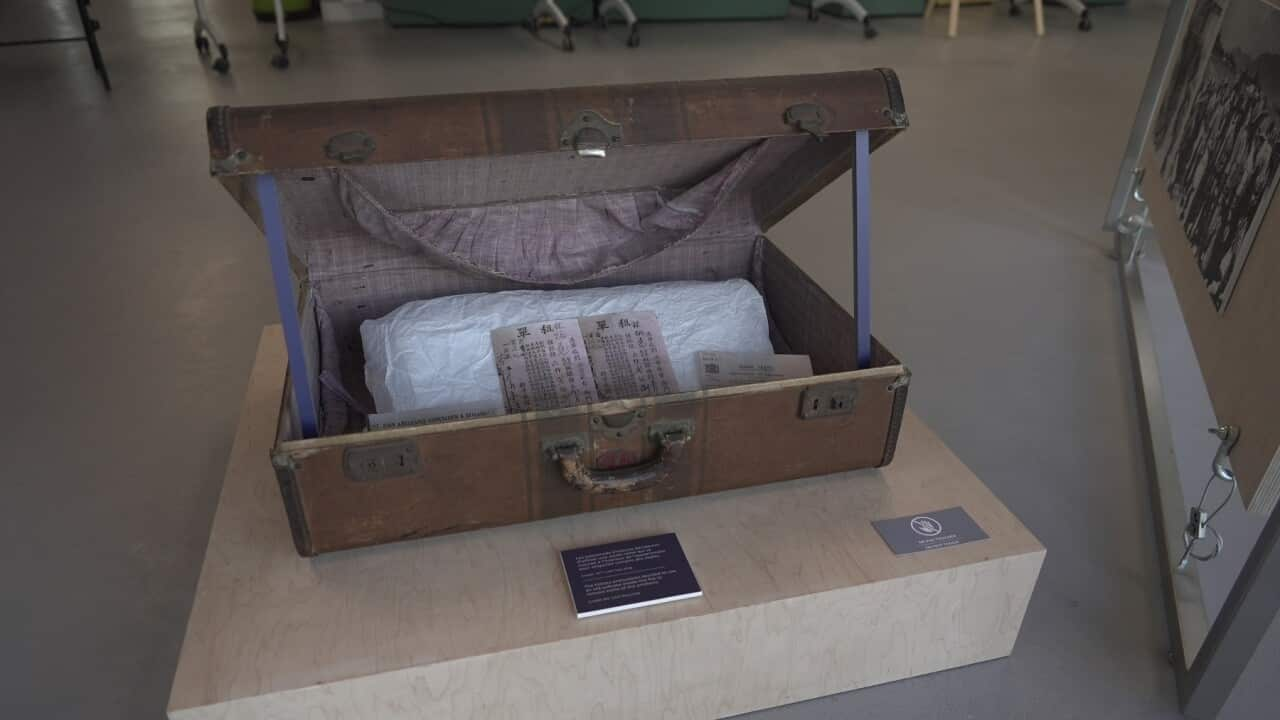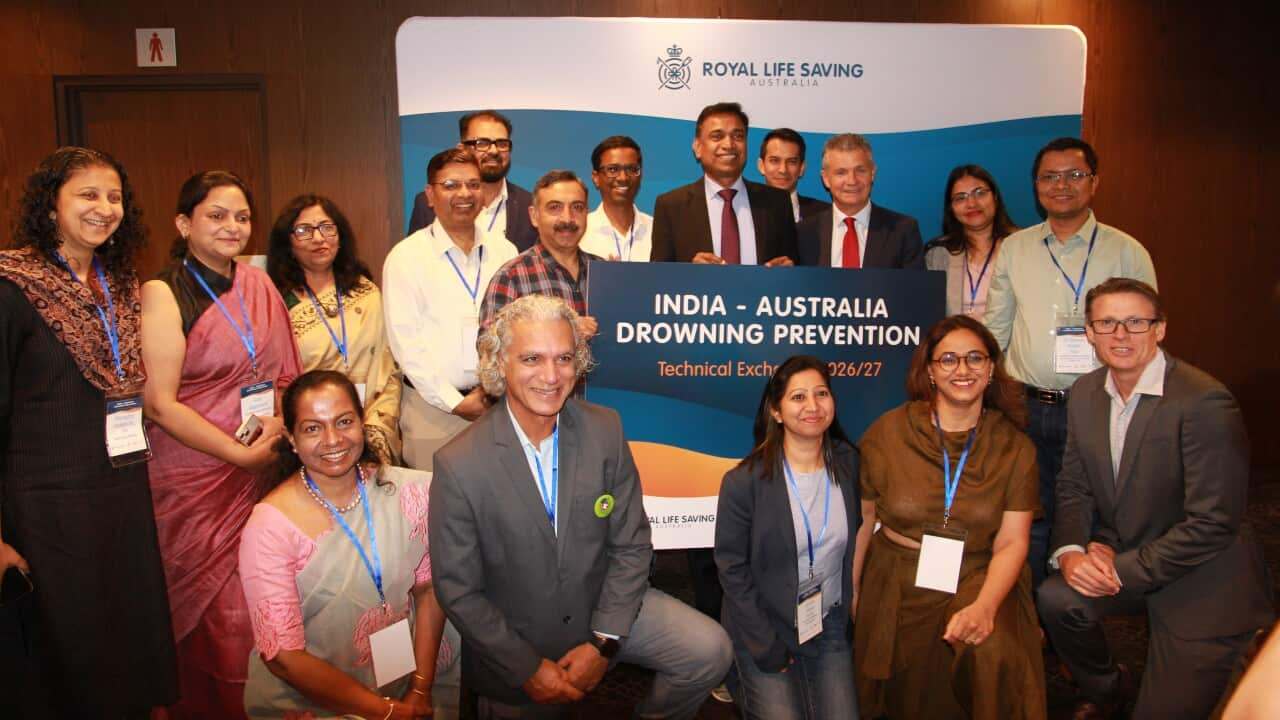Listen to Australian and world news and follow trending topics with SBS News Podcasts.
TRANSCRIPT:
It's a stunning discovery.
In an abandoned apartment building slated for demolition in Hong Kong, a long-forgotten diary has been found.
It sets out in meticulous detail the experiences of a Chinese officer during World War two.
Angus Hui is the Co-curator of a WWII Chinese exhibition that features the diary, written by Lam Ping Yu.
"Lam Ping-Yu was a Chinese naval officer. He took part in the D-Day landings in 1944. He was selected to train with the Royal Navy in 1943 by the Chinese government and subsequently took part in the liberation of France. So this diary is an 80-page diary with 13,000 Chinese characters and the duration of the diary mainly covers from May 1944 to November that year."
As survivors of the Battle of Normandy disappear, Mr Lam’s compelling firsthand account adds another vivid voice to the huge library of recollections that the World War II generation is leaving behind. But the diary is not only bringing his story back to life - it is also shedding light on the participation of Chinese officers in the multinational invasion.
Angus Hui says little is known of that part of history.
"Mr Lam was not alone. When he was selected, there was a group of 24 Chinese naval officers being selected by the Chinese government.... Many of them, I guess, after the war, they tended not to speak about their war-time experience. That's why this story was very little known and was not being promoted and celebrated."
Mr Lam's daughter, Sau Ying Lam, has been reading excerpts from the English translation.
"Before 6 am, Ramillies also opened fire. Three torpedoes were fired at us. We managed to dodge them as we were at the moment turning around to adjust our firing position. The three torpedoes narrowly missed the ship on both sides, which was exceptionally fortunate."
Sau Ying Lam says it is opening her eyes to things she never knew about her father.
"All I knew about my father was that he had fought in Normandy during D-Day, that's the extent of the story. I didn't know anything about his background. So they forwarded me an article and it had the story of how my father recommended himself to (former President of the Republic of China) Chiang Kai-Shek and how he was declined, but then afterwards he was accepted and his journey from China to Liverpool - the four month journey - and all of that, it was so unknown to me and it was completely surprising. I was flabbergasted. It was emotional. I was so inspired, so touched and it gave me an insight into who he was."
She says the diary is helping her feel re-connected.
"It's a gift of me learning who he was as a young person and understanding him better, now, because I didn't have that opportunity when he was still alive, so now it's my chance, my second chance to get to know him better."













